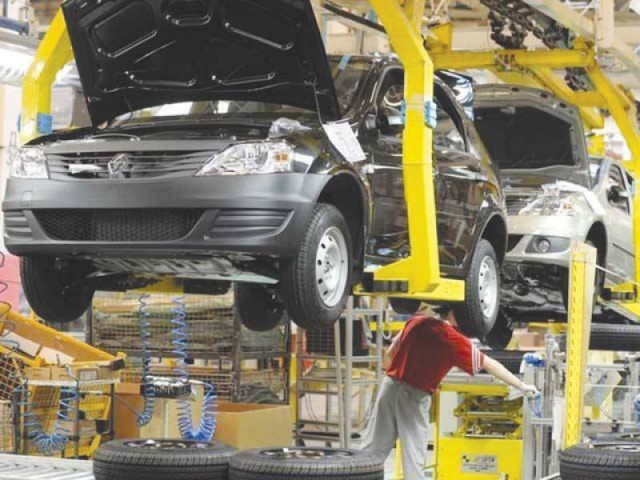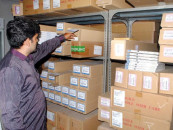Suzuki links $450m investment to Greenfield status
Automobile Policy 2016 bars extending incentives to existing three car assemblers

After introduction of new policy, Renault, Kia and Hyundai have decided to start assembling cars in Pakistan. PHOTO: FILE
To secure the $450-million investment, the government will have to amend the Automobile Policy 2016 that clearly bars extending Greenfield investment project status to the existing three Japanese car assemblers including Suzuki Motors. If the government still decides to accept the $450-million investment offer, it will be seen as a favour to the company.
Under the existing policy, the company’s investment will fall in the category of Brownfield project - the existing ones - but it is seeking benefits of the Greenfield project, said officials in the Ministry of Industry.
The Pakistan Muslim League-Nawaz (PML-N) government had stood its ground two years ago and refused to give these tax benefits to the three assemblers, as it wanted to break their monopoly by bringing in at least one European and other Asian brands.
Pak Suzuki senior executives on Tuesday met with Prime Minister Imran Khan and vowed to invest $450 million to expand its operations in Pakistan. After the meeting, Finance Minister Asad Umar had said that it was an “excellent day from a foreign investment perspective, as Global Chairman Suzuki Motors visited and expressed interest in investing $450 million to expand car production in Pakistan”.
There would not be a party-specific decision and any amendment in the automobile policy will be done in consultation with all stakeholders, including the new entrants, said Ministry of Industries Secretary Azhar Chaudhry.
After introduction of the new policy, French automobile manufacturer, Renault and South Korean players, Kia Motors and Hyundai, have decided to start assembling cars in Pakistan. This month, Volkswagen also signed an agreement with a dealer of luxury cars to assemble vehicles in Pakistan.
All this would help break the monopoly of existing industry players, besides providing a chance to consumers to buy better-quality vehicles at comparatively lower prices.
Investors should take the country risks and it should provide a level-playing field for all players, said Board of Investment (BOI) Chairman Haroon Sharif, while responding to a question regarding the Pak Suzuki Motors’ demand.
Pak Suzuki eyes benefits
A major incentive for the new investors is the reduced 10% customs duty on non-localised parts for five years, which is only one-third of rates available to the existing players. Similarly, localised parts can be imported by new entrants at 25% duty for five years, also nearly half of the rates being available to the existing players.
The government has allowed one-off duty-free import of plant and machinery for setting up an assembly and manufacturing facility. It has also permitted import of 100 vehicles of the same variants in the form of completely built units (CBUs) at 50% of the prevailing duty for test marketing after the ground-breaking of the project.
Without getting these preferential treatments, no new foreign manufacturer can establish footprints in Pakistan due to a strong network of the three existing assemblers.
What policy says?
The Greenfield project is defined as “installation of new and independent automotive assembly and manufacturing facilities by an investor for the production of vehicles of make not already being manufactured in Pakistan”. ‘Make’ is defined as any vehicle of whatever variant produced by the same manufacturer.
The three existing players badly failed to localise their production despite availing all types of benefits during the last three decades. Today, prices of their vehicles are highly sensitive to exchange rate fluctuations.
Pakistan welcomes Pak Suzuki Motors’ decision to invest but now the company should get into a new range and improve quality of its parts so that it can be exported to the rest of the world, said the BOI chairman. He emphasised that competition should be encouraged to reduce prices for consumers and provide them more options. Pak Suzuki is the largest vehicle assembler and specialises in small and medium-sized cars.
Published in The Express Tribune, November 29th, 2018.
Like Business on Facebook, follow @TribuneBiz on Twitter to stay informed and join in the conversation.



















COMMENTS
Comments are moderated and generally will be posted if they are on-topic and not abusive.
For more information, please see our Comments FAQ